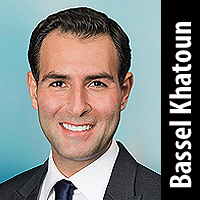

Kuwait stands on the cusp of a new era of investment. Promotion to MSCI Inc's Emerging Market Index (MSCI EM) this week, though contingent still on several market features being introduced to international institutional investors before November, puts the country in the 'crosshairs' of deep-pocketed global investors and the roughly $1.8 trillion that tracks the popular gauge. The significant liquidity surge that typically accompanies MSCI EM promotion also means investors in Kuwait stand to benefit from a more institutionalized and liquid stock market.
Kuwait's likely MSCI upgrade reflects the hard work that the country's Capital Markets Authority (CMA) has undertaken over the past two years to make its stock market more accessible and attractive to global investors. During this time, it has made tangible improvements to its clearing, custody, and settlement services, increased foreign ownership levels (FOL), and eased the process of setting up investor trading accounts. We remain confident that Kuwait can make omnibus account structures and same National Investor Number cross trades available in the coming months, as requested by MSCI, to ensure index inclusion takes effect next year.
According to MSCI, up to 18 Kuwaiti stocks will be eligible for MSCI EM, with the inclusion basket likely to be concentrated in banks (c 70 percent). Actual implementation however will not take place until May 2020. While Kuwait has already been recognized as an "emerging market" by index providers FTSE Russell (FTSE EM) and S&P Dow Jones, the country's inclusion in MSCI EM is a landmark deal and will represent Kuwait's biggest ever liquidity event.
Initially, Kuwait's MSCI EM weighting might amount to approximately 50 basis points, or 0.50 percent. Based on this representation, we expect total investor flows of about $10 billion ($2.5 billion in passive flows and $7.5 billion in potential active flows). For context, over the past 12 months Kuwait has seen a total of $1.9 billion of foreign inflows, driven primarily by the FTSE EM Index inclusion which took place over two phases in September and December 2018.
Upgrades aside, the fundamental case for investing in Kuwait may be worth considering. With substantial reserves, low levels of debt and a stable banking sector, Kuwait stands out in an EM context. Add to this a budget breakeven oil price of just $49 a barrel for 2019, the lowest by some margin in the region, and a 'AA' credit rating, Kuwait can be considered a low beta, defensive investment destination.
Another factor in Kuwait's growing appeal is a "diversification story" that is gaining momentum. Kuwait continues to make significant progress in terms of fiscal and structural reforms and is committed to developing a dynamic and vibrant private sector. And while there is still some way to go, the results of Kuwait's move to reduce the role of the public sector in the economy are encouraging.
The country is moving away from oil dependence by developing its infrastructure, investing in human capital and promoting private sector involvement. In the government's Vision 2035 plan, it has developed a blueprint for a more sustainable future. To date, we've seen about $60 billion of investment allocated under this plan, with the prospect of $100 billion more to come providing ample runway for growth. When you consider that Kuwait's Northern Gulf Gateway project alone is expected to add about $220 billion to Kuwait's GDP, as well as creating 300-400,000 jobs, Kuwait's economic potential becomes much clearer.
In our view there is also a solid valuation argument to be made for holding Kuwaiti stocks. Despite trading at a 15 percent premium to EM peers, valuations remain reasonable given the country's low cost of equity implied by its lower risk profile. It is worth keeping in mind that the surge in liquidity that will likely accompany Kuwait's MSCI EM inclusion does have the potential to stretch valuations further. Recent upgrades of the UAE, Qatar, Pakistan and KSA increased valuations significantly in the final year prior to inclusion.
Moreover, the earnings outlook for listed Kuwaiti companies supports a valuation premium. On average, Kuwait stocks are delivering 13.5 percent EPS growth coupled with a 4.8 percent dividend yield which is attractive within an EM context. On a sector view, we remain particularly upbeat about Kuwait's banking sector, which is showing improving profitability on the back of falling provisioning and improving asset quality.
Our view is that with Kuwait's addition to MSCI EM, the combined MENA (Kuwait, Saudi Arabia, UAE, Qatar and Egypt) representation will amount to approximately 5.2 percent, putting this region firmly on the global investment map. We would also expect more active money managers begin to look at MSCI EM through a MENA lens, raising the possibility of a positive spill over impact for the region's capital markets.
Kuwait's MSCI promotion is just reward for the range of transformational measures it has implemented to improve its capital markets. And although the pace and quantum of change in the country has, in the past, been slower than neighbors like the UAE and Saudi Arabia, a more balanced risk reward profile means Kuwait should remain a favorite amongst investors.
NOTE: Bassel Khatoun is Managing Director, Frontier and MENA, Franklin Templeton Emerging Markets Equity
By Bassel Khatoun



